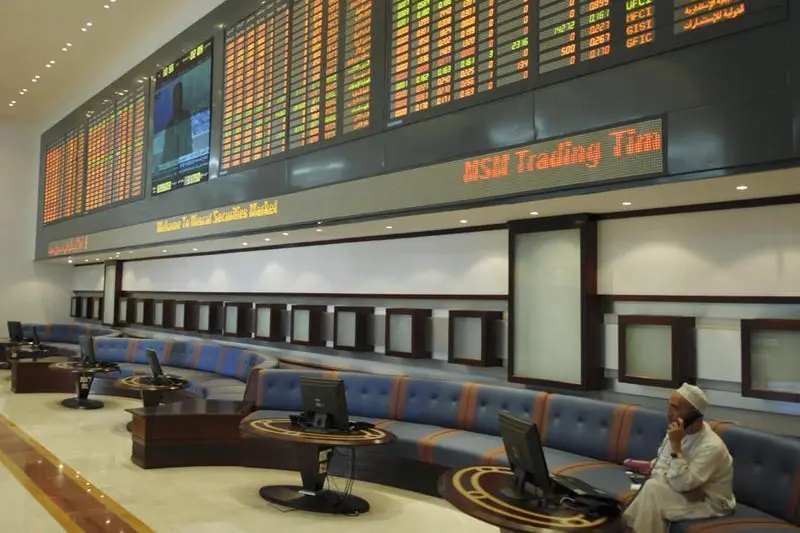PHOTO
Muscat: The Muscat Stock Exchange (MSX) recorded its third consecutive week of losses, declining by 1.32 percent, according to an industry expert.
“The downward trend was primarily influenced by falling oil prices affecting regional markets, coupled with disappointing earnings announcements from two major market constituents - Oman Telecom and OQ Exploration and Production,” said Joseph Dahrieh, Managing Principal at Tickmill.
“The market is currently testing support levels established in early August, and further decline seems possible if these levels are breached, though a potential recovery could materialise if oil prices rebound,” he further added.
In the sectoral breakdown, the Industrial sector led the decline, with Galfar Engineering and Contracting weighing heavily on the sector by losing 9.17 percent. Al Anwar Ceramic also contributed to the sector’s weakness, declining by 4.17 percent.
The Financial sector similarly faced pressure, dropping by 1.10 percent. The decline was broad-based across major financial institutions, with Bank Muscat falling 1.17 percent, Omnivest declining 4.20 percent, Sohar International Bank dropping 0.74 percent, and Global Financial Investment Holding decreasing by 2.38 percent.
In the Services sector, which declined by 0.59 percent, OQ Exploration and Production continued its negative trend for the third week since its listing, impacted by a 16 percent decline in nine-month profits. The stock’s performance has significant implications for the broader market, given that it accounts for more than half of the market’s trading activity in both volume and value terms. Additionally, Oman Telecom declined by 0.31 percent, following a 23 percent decrease in its profits for the first nine months of the year.
The current market weakness stands in contrast to Oman’s solid macroeconomic performance, as evidenced by the latest fiscal data showing total state revenue reaching OMR8.886 billion, with robust growth in both oil and non-oil revenues at 12 percent and 13 percent respectively.
The oil sector’s performance has been particularly strong, with average oil production reaching 1,001,000 barrels per day at an average price of $83 per barrel.
“Despite moderate gross domestic product (GDP) growth, the government’s continued commitment to development projects and well-controlled inflation levels demonstrate the economy’s underlying strength,” said Joseph Dahrieh.
“These stable macroeconomic indicators, supported by prudent fiscal management and steady revenue growth, could potentially provide support for market sentiment in the medium term, as investors reassess valuations against these fundamentals amid the ongoing pipeline of new IPOs,” he further added.
© Muscat Media Group Provided by SyndiGate Media Inc. (Syndigate.info).




















